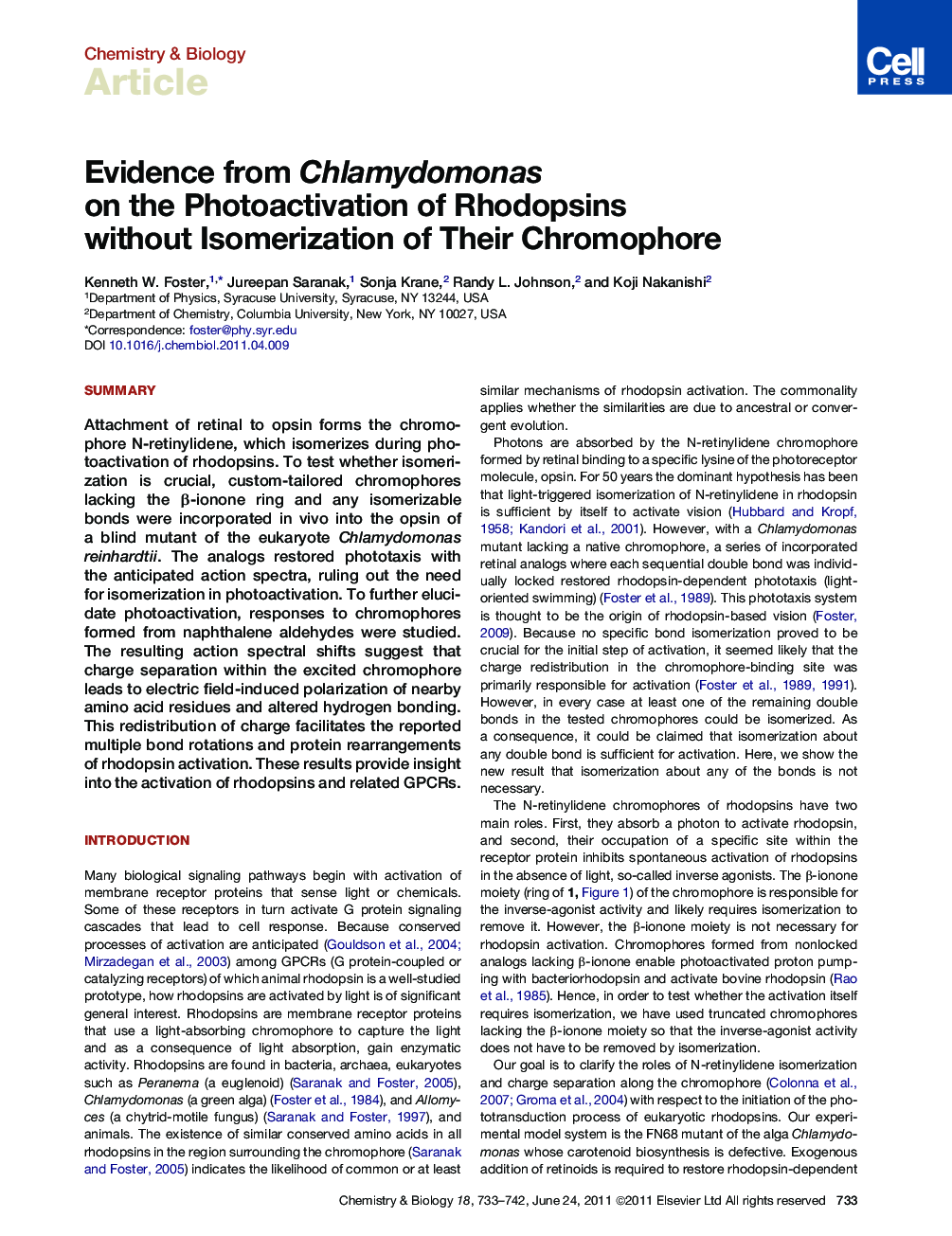| کد مقاله | کد نشریه | سال انتشار | مقاله انگلیسی | نسخه تمام متن |
|---|---|---|---|---|
| 1391409 | 983261 | 2011 | 10 صفحه PDF | دانلود رایگان |

SummaryAttachment of retinal to opsin forms the chromophore N-retinylidene, which isomerizes during photoactivation of rhodopsins. To test whether isomerization is crucial, custom-tailored chromophores lacking the β-ionone ring and any isomerizable bonds were incorporated in vivo into the opsin of a blind mutant of the eukaryote Chlamydomonas reinhardtii. The analogs restored phototaxis with the anticipated action spectra, ruling out the need for isomerization in photoactivation. To further elucidate photoactivation, responses to chromophores formed from naphthalene aldehydes were studied. The resulting action spectral shifts suggest that charge separation within the excited chromophore leads to electric field-induced polarization of nearby amino acid residues and altered hydrogen bonding. This redistribution of charge facilitates the reported multiple bond rotations and protein rearrangements of rhodopsin activation. These results provide insight into the activation of rhodopsins and related GPCRs.
Graphical AbstractFigure optionsDownload high-quality image (213 K)Download as PowerPoint slideHighlights
► Rhodopsin photoactivation occurs, although no double-bond isomerization is possible
► On photoactivation charge separation occurs within the excited chromophore
► Resulting electric field changes induce polarization of nearby amino acid residues
► Polarized amino acid residues and the altered H-bond network activate rhodopsin
Journal: - Volume 18, Issue 6, 24 June 2011, Pages 733–742